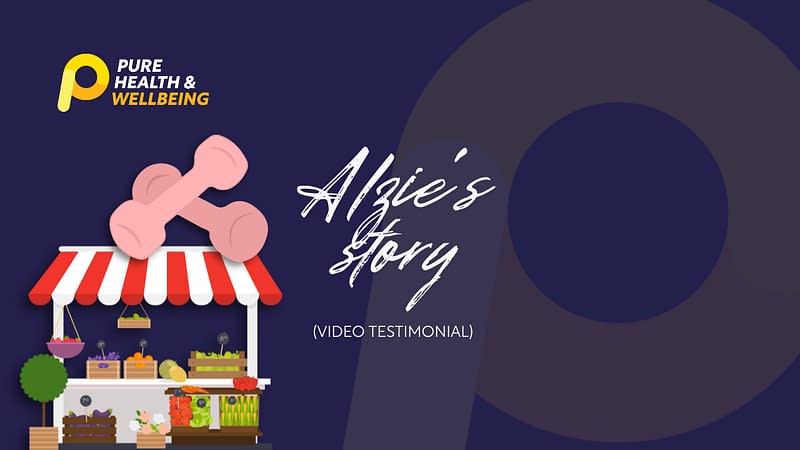Pain Specialist Health and Wellbeing Coaching to Support Deprescribing in Primary Care
Pure Physiotherapy have been working in partnership with Doncaster North PCN providing First Contact Physiotherapy (FCP) services since 2020. The PCN leadership team identified deprescribing and the management of persistent pain as a key priority and set out to address the problem with us. This case study reviews an innovative approach to deprescribing, demonstrating consistent improvements in quality of life and reduction in opioid use.
The Challenges
The scale of the opioid crisis worldwide has been well documented, with long-term opioid use associated with severe health risks, avoidable deaths, and a huge cost to the NHS. Between 2008 and 2016, opioid prescriptions in the UK increased by 34%, and the total morphine equivalent dose increased by 127% (BMJ, 2021).
High levels of long-term opioid use were identified in North Doncaster, with over 35% of the FCP caseload presenting with persistent symptoms of over 6 months or more. Through our data collection, we are able to guide service improvements, new projects, and training.
Local secondary care services were under immense strain, with the pain management service having to stop accepting referrals due to a waiting list of over a year. There is traditionally limited time in primary care to address the many issues associated with opioid dependency and persistent pain. GPs in North Doncaster came together with us at a network meeting to discuss the problems. It was clear that GPs found it difficult to deprescribe in isolation and, despite their best efforts, were having limited success.
The Solution
Working in collaboration with the primary care team, we developed a PCN-wide service integrating our primary care pain support service. The team consisted of a GP with a special interest in deprescribing, First Contact Physiotherapists, and Pain Specialist Health and Wellbeing Coaches. Our clinical team was supported by Advanced Practitioners and a Health Coaching supervisor to ensure complex cases could be reviewed and actioned appropriately.
Using proactive searches, patients on opioids and gabapentinoids were identified along with those with a diagnosis of persistent pain or fibromyalgia. Patients were contacted and invited to enrol in the programme.
The initial assessment by a First Contact Physiotherapist included a biopsychosocial evaluation and screening for any underlying pathology. Patients were then booked with the Health and Wellbeing Coach to explore their persistent pain further and formulate a personal care and support plan. Those who were appropriate for deprescribing were also reviewed by the GP with a special interest, and a shared plan was formulated to reduce their medication, including advice and education on the risks of opioids.
The Health and Wellbeing Coach provided intensive personalised care sessions weekly via phone or video to assist patients in addressing challenges, setting goals, managing persistent pain, and developing effective strategies. We integrated closely with the primary care team and the local Voluntary, Community, and Social Enterprises (VCSEs), utilising social prescribers when appropriate to support individuals further.
Why Health Coaching?

We have a team of UK health coaches trained by the Personalised Care Institute with additional expertise in persistent pain science and communication with patients living with persistent pain to enhance patients lives.
Health and Wellbeing Coaches are recommended key members of the primary care team, fully reimbursable through the Additional Roles Reimbursement Scheme (ARRS), ensuring cost-effectiveness and clinical efficacy.
The Outcomes
Consistent quality of life and self-efficacy improvements were shown with reduced prescription medication use. The Pain Self-Efficacy Questionnaire (PSEQ) looks at the individual’s ability to manage their activities of daily living. It indicated a 50% increase on average, reflecting enhanced daily activity management. Positive changes were observed in socialising, physical activity, and goal achievement.
Medication reductions were tracked and a cost-saving analysis was conducted. 93% of patients reduced or completely stopped their medications with an average annual saving of £119 per patient. 75% of patients did not attend their GP practice during the programme. *People living with persistent pain visit primary care up to 5 times more than people without, accounting for approximately 22% of appointments* (RCGP, 2018).
Dr Charlotte Ferguson, the GP working on the project was impressed by Specialist Health and Wellbeing Coaches’ impact on deprescribing, and believes this model is crucial for effectively addressing high opioid use:
“I believe the model works and might be a foundation for better supporting many persistent conditions in the community. I have been doing de-prescribing for many years and this is probably the first time patients have demonstrated such levels of compliance.”
Patient Feedback
‘’I am now working with my pain and not against it and am feeling so much better! Pacing has been useful, and the programme has helped me to understand that rather than rushing slowing down helps me manage my pain better – thank you!”
“When I started the programme, I did not think having telephone calls would make a difference or how it would help speaking to someone, but I have surprised myself with how well I have done, and I am so grateful for Claire’s help. Pacing is the key to get me back on my feet, and I am walking more than what I ever thought I was.”
“I was very nervous of coming off the meds as I had been on them for so long. But it was explained to me about interactions between all my meds. It’s the best thing I have done in years. I feel great, I used to have brain fog but no more”
Learn More: Primary Care Pain Support
Download Case Study




